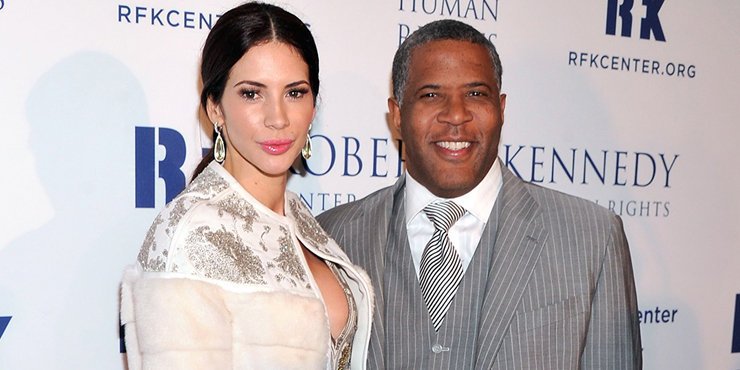
- Robert F. Smith was among the first African Americans to run a private equity fund, he told Business Insider.
- The billionaire businessman pushes diversity initiatives at every software company he invests in, and says it helps them create better products.
- Smith made headlines in May after announcing that he would pay off the student loans of a Georgia-based, historically black college’s graduating class.
- Visit Business Insider’s homepage for more stories.
Robert F. Smith is the richest black man in America, and one of only four to currently have a net worth of more than one billion dollars. The son of two Denver-based school teachers, he earned degrees from Cornell University and Columbia Business School before founding Vista Equity Partners, a private equity firm that specializes in software companies, in 2000.
From the journey of becoming a black private equity titan, Smith knows one piece of conventional wisdom to be true: Life really is lonely at the top. Smith is now spending his $5 billion fortune to make sure it doesn’t stay that way.
Most famously, Smith volunteered to pay off the student loans of Morehouse College’s entire graduating class while delivering their commencement address in May. He later expanded the gift, which the historically black university said totaled $34 million, to cover any outstanding educational debt owed by the students‘ parents.
Smith’s efforts don’t only benefit African Americans. Vista exclusively invests in software companies – a rarity in private equity – and has emphasized gender diversity initiatives at all of them. Vista also hosts an annual conference where female leaders from across the firm’s portfolio, representatives from Columbia Business School, and other tech executives discuss strategies for getting more women into their highest ranks. After moderating a panel at this year’s event on February 19 in New York City, Smith sat down for an interview with Business Insider.
The following interview has been edited for length and clarity.
Taylor Nicole Rogers: One of the things Vista is best known for is looking beyond the Ivy League to pull talent from a wide variety of backgrounds. How do you do that?
Robert F. Smith: What we’re really looking for are the smartest people on the planet to work for us. The key is to make sure that we go as broad as we can, so we can be reflective of what this planet looks like in the companies we operate.
Our products service every industry. We’re in 175 countries, we have 225 million users of our software. They all look different. If you design software for just one certain segment and one certain way, then that, most likely, is all that’s going to use it. There are about seven billion people on this planet. Only 26, 27 million of us actually know how to write code. So we have got to go find those folks and cultivate and develop them.

